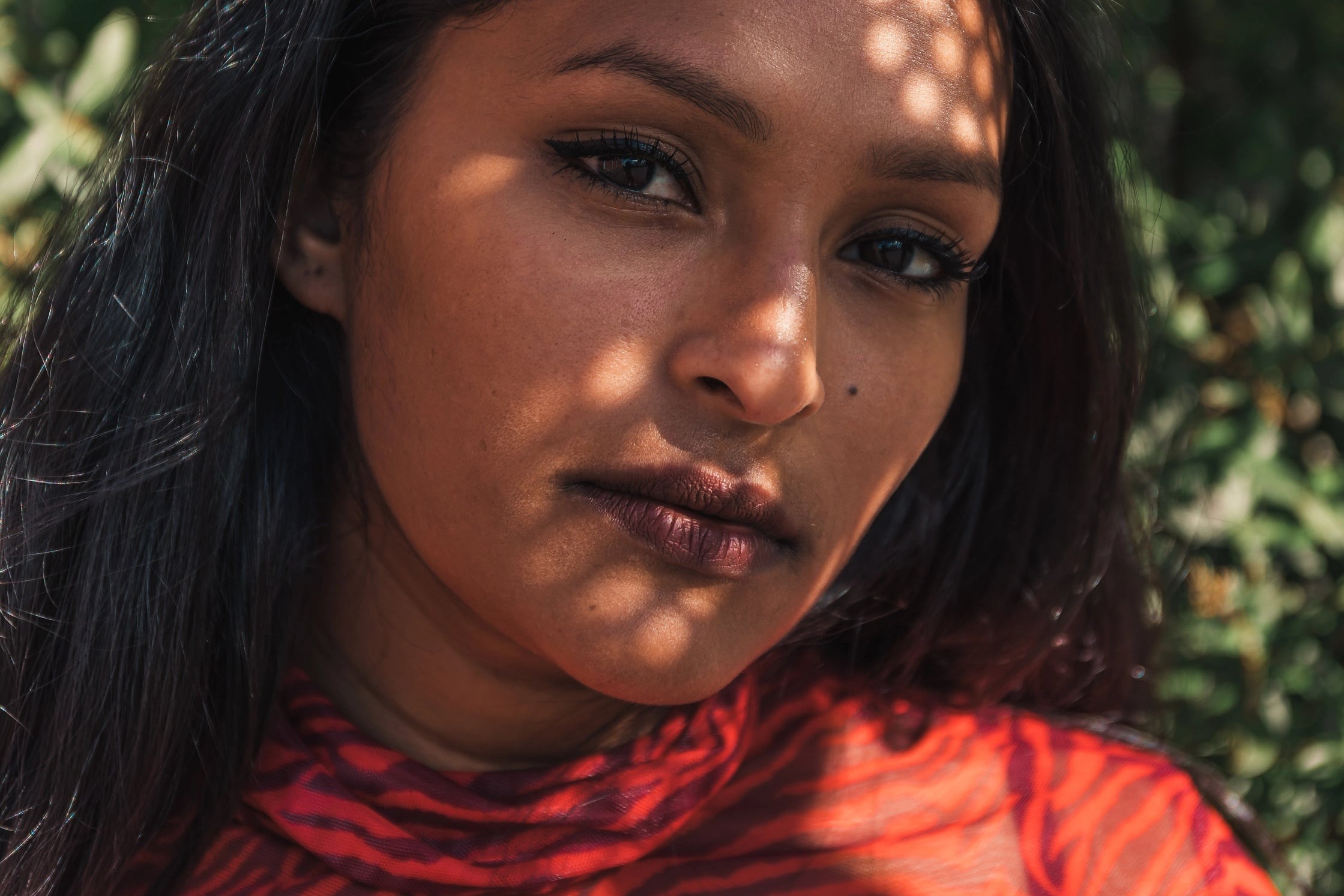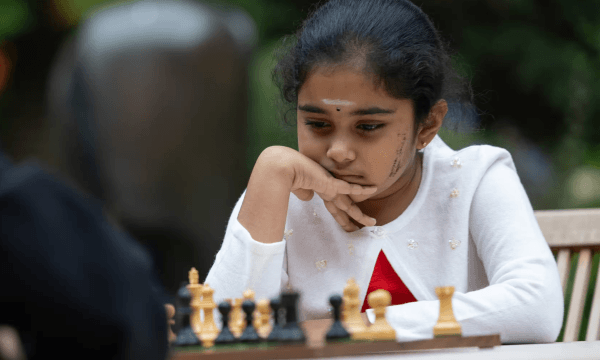
In the recent past, mainstream western media predominantly showcased individuals of European descent, creating a disconnect from other ethnic groups. Today, mainstream media rapidly adapts to create an inclusive space for diverse backgrounds, as evidenced by films and shows such as Marvel's "Black Panther" and television series like "Kim's Convenience" and "Never Have I Ever." These examples are reshaping mainstream media, ensuring that viewers can identify with characters from various backgrounds on large entertainment platforms.
The Netflix show "Ragnarok" is another example of mainstream media embracing inclusive casting. In the series, the recurring character Iman Reza, portrayed by Danu Sunth, is a Tamil woman authentically represented as a Tamil character in the show.
I had the opportunity to catch up with Danu and discuss her journey in the media industry, the significance of being a Tamil woman in media, and the challenges she has conquered.
Meet Tamil Singles from Canada, UK, the USA & more! Join myTamilDate.
Danu was born in 1992 in Sri Lanka, and at age 6, the whole family moved to Norway and found themselves in a small town called OS, just outside of Oslo, eventually moving to the capital of Norway, where she spent her teenage and adult years.
After graduating, Danu worked as a freelance actor in Norway for about a year. She recalls, "the industry wasn't very diverse or open to brown actors, especially a decade ago. The roles were limited, and there weren't many opportunities for female actors of color in Norway." This led her to relocate to London and pursue a one-year course in drama, theatre, and performance studies at Roehampton University. Following her studies, she resumed freelance work, describing her experiences as follows:
It was more about taking on various jobs to make ends meet, such as working at Foot Locker, restaurants, and pubs – basically anything to pay the bills.
Over time, Danu began to engage in unpaid work and expand her professional network, which eventually helped her secure small acting roles here and there, acknowledging that the journey was indeed challenging.
After the COVID-19 pandemic, Danu returned to Oslo for a few months and worked at a pizzeria. During this time, a friend of hers had a show at the Norwegian theatre, and she attended the premiere. Following the premiere, there was an after-party where she met a woman who happened to be a casting director. The casting director asked Danu for her contact details, and she received a call the next day. The casting director explained the show she was casting for, which turned out to be "Ragnarok." Danu auditioned for it and successfully landed the role of Iman Reza. As of now, the show has completed three seasons.
Astounded by Danu’s story, I said, “Wow, that's quite amazing because it seems like you were doing whatever you needed to do for your security and survival. You were working to make ends meet, but simultaneously, you relentlessly pursued your passion for drama and acting. You went through a prolonged period of chasing one gig after another. How did it feel during that journey? Did you ever reach a point where you wanted to give up?”
Danu responded to my remark, saying:
Almost every day, I'd find myself asking, 'Is it really worth it?' Especially during the first ten years, because there's this idea that one big gig or a particular role can be your ticket to success, and to some extent, that's true. But it's not that straightforward; it's not that easy.
Danu keeps this as a reminder to continue striving towards that point of success.
Danu explains that when she first moved to London, she felt she had no choice but to succeed. She says, "Coming from a Tamil household, you've announced your plans to everyone, including your parents. They supported me in their way, even though they didn't fully understand what I was doing."
Danu often found herself constantly searching for the next job, and even when she landed some small gigs, it felt like it needed to be more sufficient and good enough. She explains, "You're constantly striving for that big break. It was challenging, and I'd think about it almost every day, wondering why I thought I was so special and how I could make it work."
In response, I asked Danu, "How do you motivate yourself to keep going?"
She replied, "Well, it's impossible to have this conversation without addressing the challenges of being a person of colour in this industry. It's something that constantly weighs on my mind. About 99% of the time, I question whether a role is suitable for me and if all my lines and character representations are handled with respect. Sometimes, I'm asked to portray a character that doesn't match my background at all. I won't name names, but I've been asked to play an Iraqi woman, and it's just baffling because, in reality, I don't resemble one."
Experiences like this make Danu question, "Does it push my boundaries? Is it ethically sound that they can't find an Iraqi or Arabic woman for the role in the area?" She explains, "These moral dilemmas arise constantly, and it can be quite challenging."
I responded, "When you encounter those situations, how do you remain true to your moral values?"
Danu responded, "I've noticed a shift in my perspective over time. When I was younger, my drive was primarily self-centred, and I was quite stubborn. I was determined to prove myself because the environment I grew up in was predominantly white. This was true in my high school as well. It's okay to some extent, but eventually, you wonder, 'Am I the only person who looks like me?' While in places like England or Canada, you see people from different ethnic backgrounds in popular culture, it's still relatively limited in Norway." This realization motivated Danu to leave Norway and establish her career in England. However, she explains that she has observed positive changes in Norway during her ten years away.
I followed up with Danu's response by asking, "How does it feel to represent Tamil culture on a major platform like Netflix and in 'Ragnarok'? What does this mean to you?"
Danu replied, "It's truly incredible, and when you reflect on it, it's inspiring. I'm immensely thankful for the opportunity to portray a young, dynamic, strong female character with her unique journey. She's meant to be around 17 or 18, going through life on her terms. It's a privilege to depict such a powerful character, especially as a Tamil woman."
Danu also explained that initially, in the script, the character was written as a Pakistani character. However, in season two, her background was changed to Sri Lankan because Danu kindly asked the writers to make that change, which they were open to. She said, "Being able to mention Sri Lanka in the show feels like a small victory, and it's amazing to witness its impact. While it's a significant hit in Norway, Europe, and the United States, it's mind-blowing to see it among the top ten TV shows in Sri Lanka. It's simply incredible."
I concluded the interview with Danu by asking her, "What's one piece of advice you would give to someone who aspires to become an actor or actress?"
She responded, "First and foremost, you must believe in yourself genuinely. If you can't confidently say, 'I'm an actor,' it becomes difficult for others to invest in your talent."
Danu recounted when she first moved to London and felt uncomfortable when people asked her what she did for a living. She used to reply with, "I'm an actor," and often faced follow-up questions like, "What have I seen you in?" These situations initially bothered Danu, but she soon realized that if she couldn't own it, nobody else would believe in her. She continued, "It's hard work, no doubt, but it all starts with believing in yourself and your abilities. Once you have that belief, put in the effort like nobody else; it's your dedication and hard work that set you apart."
-Featured image by Monzer Faisal


























